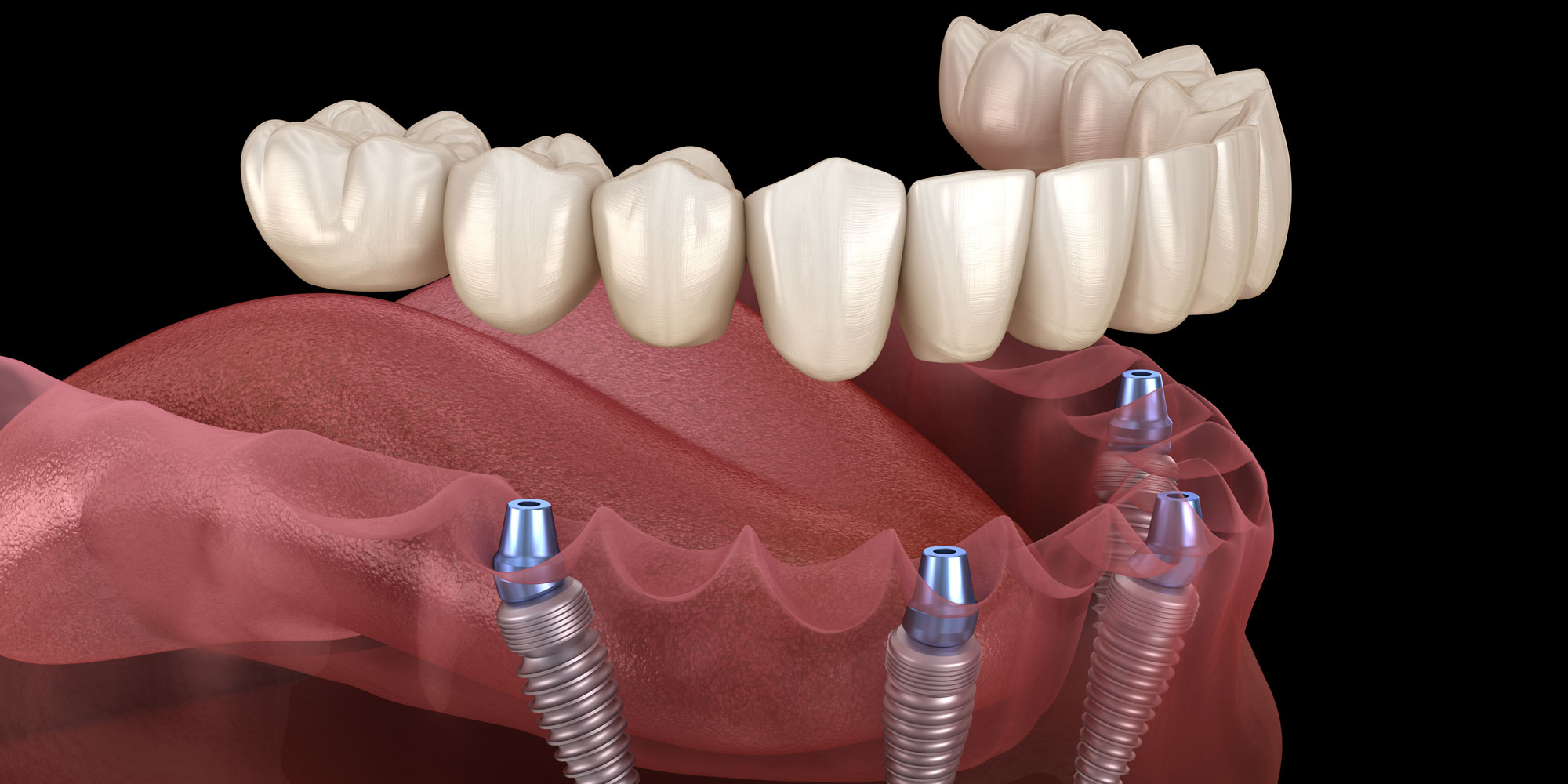The Only Guide for Dental Sense
Fascination About Dental Sense
Table of Contents3 Simple Techniques For Dental SenseThe Best Guide To Dental SenseThe 6-Second Trick For Dental SenseNot known Factual Statements About Dental Sense
are clinical devices operatively implanted right into the jaw to recover an individual's ability to chew or their look. They provide assistance for synthetic (phony) teeth, such as crowns, bridges, or dentures. When a tooth is lost as a result of injury or disease, a person can experience difficulties such as fast bone loss, malfunctioning speech, or modifications to chewing patterns that cause pain.Dental dental implant systems contain a dental implant body and oral implant joint and may also consist of an abutment addiction screw. Wisdom tooth cavity. The dental implant body is operatively put in the jawbone instead of the tooth's root. The dental implant joint is normally affixed to the implant body by the abutment addiction screw and expands through gum tissues right into the mouth to sustain the attached man-made teeth
(https://share.evernote.com/note/12f780ae-8ad1-693d-87b6-b9c57ca5907c)Structure of The Oral Implant System choosing dental implants, talk with your oral provider concerning the potential benefits and risks, and whether you are a prospect for the procedure. Things to think about: Your total health and wellness is a vital variable in establishing whether you are a good prospect for dental implants, for how long it will certainly require to heal, and for how long the implant may remain in place.
Smoking may influence the recovery procedure and lower the long-term success of the dental implant. The healing procedure for the dental implant body may take several months or longer, during which time you commonly have a temporary joint instead of the tooth. the oral implant procedure: Very carefully comply with the dental health guidelines provided to you by your dental supplier.
Some Known Details About Dental Sense
Implant failing can result in the demand for one more procedure to fix or replace the implant system. Brings back the ability to eat Recovers cosmetic look Helps maintain the jawbone from diminishing because of bone loss Maintains the health and wellness of the surrounding bone and periodontals Aids keep nearby (neighboring) teeth stable Improves lifestyle Damages to bordering natural teeth throughout implant placement Injury to the surrounding tissues throughout surgical procedure, such as sinus perforation Injury throughout surgical treatment (for instance, crack of bordering jawbone) Inadequate function, such as really feeling like the teeth do not attack with each other typically A feeling that the tooth hangs or turning in position arising from an abutment screw loosening up Implant body failure (looseness of the dental implant body) as a result of systemic infection, which may be more likely in clients with unrestrained diabetics issues because of local infection in bone and periodontals supporting the implant body due to postponed recovery, which may be more probable in clients who smoke Difficulty cleaning up the periodontals around the implant, causing poor dental health Neglected periodontal disease Post-surgical tingling due to nerve impingement or damage Constantly alert wellness treatment suppliers and imaging specialists that you have oral implants before any magnetic resonance imaging (MRI) or x-ray procedures.
FDA is not conscious of any type of unfavorable events reported for MRI or x-ray procedures with dental implants. Oral implants systems are typically made of materials that follow global consensus requirements of the International Organization for Standardization (ISO) or ASTM International. These standards have information of what makes a safe material.

A dental implant is a structure that replaces a missing out on tooth. With screw-like devices, the doctor inserts a dental implant right into the jawbone, and it works as a support for a synthetic tooth, called a crown. A tool called a joint attaches the artificial tooth to the oral implant. The crown is personalized to fit the individual's mouth and match the color of their teeth.
What Does Dental Sense Mean?
Some people are not eligible for dental implant surgery. It is for dental specialists to operate on individuals with: intense illnessuncontrollable metabolic diseasebone or soft tissue disease or infectionIf these problems are settled, an individual can have the surgery. In, dental specialists avoid from operating on people with: If people with any of the above undergo dental implant surgical treatment, there is a higher risk of the implant stopping working.

Dental implant surgical procedure is a customized process. It's not the exact same for everyone. The following gives a basic overview of what you can expect your dentist, oral surgeon, periodontist or prosthodontist to do: Put the dental implant surgically. Give you time to recover. Attach the post and last crown, bridge or denture.
Next, your doctor will very carefully place the oral implant right into your jaw. If your dental implant is near the front of your mouth, your dental professional will certainly make a temporary tooth for you to wear until you heal.
Dental Sense Fundamentals Explained
Throughout the recovery stage, your jawbone should fuse to the dental implant. This process can take anywhere from three to 9 months.
When your implant heals, your dental practitioner can affix the abutment (small connector post) and your final restoration (crown, bridge or denture). This usually takes about one hour to finish and might call for a 2nd small surgical procedure. You should not really feel any kind of pain during your oral implant procedure since your company will utilize medication to numb your periodontals.